Resources
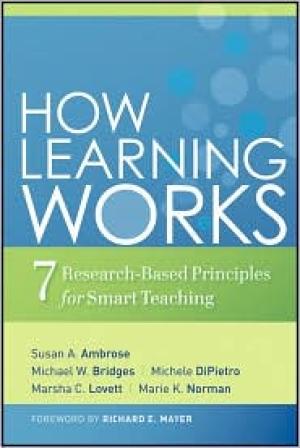
Click Here for Book Review Praise for How Learning Works How Learning Works is the perfect title for this excellent book. Drawing upon new research in psychology, education, and cognitive science, the authors have demystified a complex topic into clear explanations of seven powerful learning principles. Full of great ideas and practical suggestions, all based on solid research evidence, this book is essential reading for instructors at all levels who wish to improve their students' learning. This book is a must-read for every instructor, new or experienced. Although I have been teaching for almost thirty years, as I read this book I found myself resonating with many of its ideas, and I discovered new ways of thinking about teaching. Thank you Carnegie Mellon for making accessible what has previously been inaccessible to those of us who are not learning scientists. Your focus on the essence of learning combined with concrete examples of the daily challenges of teaching and clear tactical strategies for faculty to consider is a welcome work. I will recommend this book to all my colleagues. As you read about each of the seven basic learning principles in this book, you will find advice that is grounded in learning theory, based on research evidence, relevant to college teaching, and easy to understand. The authors have extensive knowledge and experience in applying the science of learning to college teaching, and they graciously share it with you in this organized and readable book. (From the Publisher)
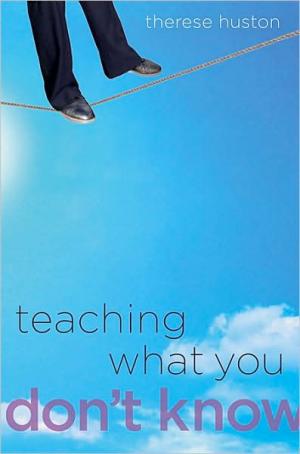
Your graduate work was on bacterial evolution, but now you're lecturing to 200 freshmen on primate social life. You've taught Kant for twenty years, but now you're team-teaching a new course on “Ethics and the Internet.” The personality theorist retired and wasn't replaced, so now you, the neuroscientist, have to teach the "Sexual Identity" course. Everyone in academia knows it and no one likes to admit it: faculty often have to teach courses in areas they don't know very well. The challenges are even greater when students don't share your cultural background, lifestyle, or assumptions about how to behave in a classroom. In this practical and funny book, an experienced teaching consultant offers many creative strategies for dealing with typical problems. How can you prepare most efficiently for a new course in a new area? How do you look credible? And what do you do when you don't have a clue how to answer a question? Encouraging faculty to think of themselves as learners rather than as experts, Therese Huston points out that authority in the classroom doesn't come only, or even mostly, from perfect knowledge. She offers tips for introducing new topics in a lively style, for gauging students' understanding, for reaching unresponsive students, for maintaining discussions when they seem to stop dead, and -yes- for dealing with those impossible questions. Original, useful, and hopeful, this book reminds you that teaching what you don't know, to students whom you may not understand, is not just a job. It's an adventure. (From the Publisher)
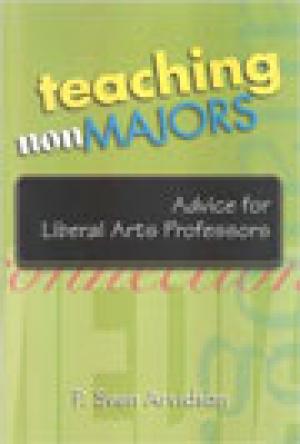
Delivers uncomplicated and useful techniques for better teaching to nonmajors in liberal arts courses. Teaching Nonmajors focuses on what dedicated teachers want to know—how can I teach better in the classroom? Unlike most books on teaching, this book delivers uncomplicated and immediately useful techniques and strategies for teaching required courses to nonmajors. Providing practical examples and brief anecdotes drawn from a variety of disciplines in the liberal arts and sciences, the author describes simple ways to break up lectures, how to stimulate the best discussions, the art of assignments, how to improve student ratings, and successful strategies for engaging nonmajors and for handling problem students. Teaching Nonmajors is written especially for liberal arts college and university professors at all career stages—from adjuncts and new professors, to seasoned professors looking for a fresh approach heading into a new term. (From the Publisher)
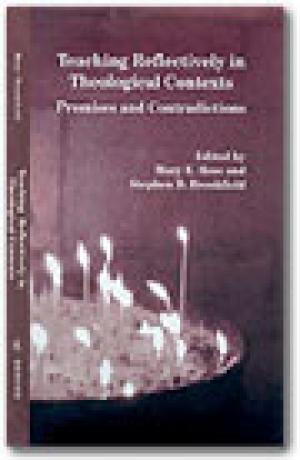
Teaching Reflectively in Theological Contexts explores the dynamics, principles, contradictions and tensions of teaching within theological contexts. It offers practical suggestions on modeling pastoral leadership, building trust with learners, negotiating the dynamics of team-teaching, questioning received truth, teaching through discussions, working with diversities, and building a culture of reflective teaching. (From the Publisher)
Journal Issue.
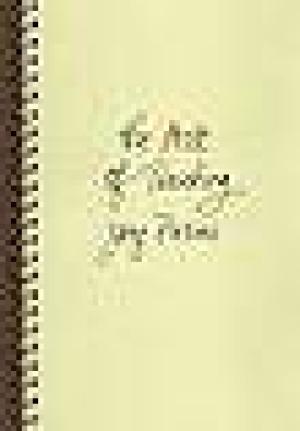
"Becoming an effective teacher can be quite painful and exhausting, taking years of trial and error. In The Art of Teaching, writer and critic Jay Parini looks back over his own decades of trials, errors, and triumphs, in an intimate memoir that brims with humor, encouragement, and hard-won wisdom about the teacher's craft." Here is a godsend for instructors of all levels, offering valuable insight into the many challenges that educators face, from establishing a persona in the classroom, to fostering relationships with students, to balancing a teaching load with academic writing and research. (From the Publisher)
Series of brief paragraph-length essays in response to specific questions, such as: how do I deal with groups who are not functioning well together? how do I get students over anxiety about the course? and should class be fun?
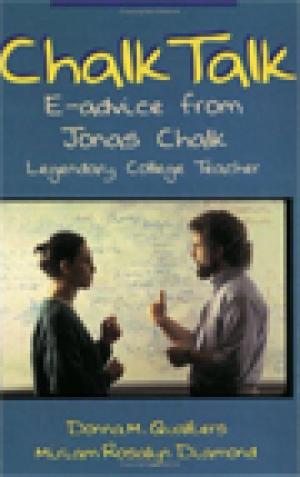
This book presents a national award-winning approach to encouraging dialogue among interdisciplinary faculty about ways to reflect on and broaden their repertoire of teaching skills. Based on the "Dear Abby" advice column format, the process was developed to initiate a dialogue on best practices, successes, and ways to address frustrations in teaching. Faculty from four different disciplines (math, chemistry, physics and engineering) began asking questions about their instructional practices and thinking about teaching in a more scholarly way. A team of outstanding teachers from across Northeastern University and the staff of the Center for Effective University Teaching formed a community of practitioners to construct responses to common teaching challenges, drawing upon the literature on effective teaching as well as their own personal experience. The resulting "columns" were sent to faculty via mass e-mail in the form of suggestions from "Jonas Chalk," an experienced teacher/advisor colleague. Topics were archived and posted on a website. Each quarter, one column was included for publication in the teaching center's newsletter. Topics Jonas tackled included testing approaches, effective uses of office hours, the ways and hows of asking questions in class, dealing with disruptive classroom behavior and much more. The mechanism garnered enthusiastic responses across disciplines; faculty were eager to share their concerns as well as techniques they had developed. Significant numbers of the faculty put the columns' ideas to work in their classrooms. Faculty interested in practicing the scholarship of teaching, while dealing with common classroom concerns, will be able to increase their understanding of classroom dynamics and their repertoire of teaching skills through the concepts and resources described in this book. Written in entertaining, enjoyable and readable prose, Chalk Talk includes a history of the project's development, the actual columns grouped into chapters by topic, and responses from faculty about how the column helped them with their teaching. (From the Publisher)